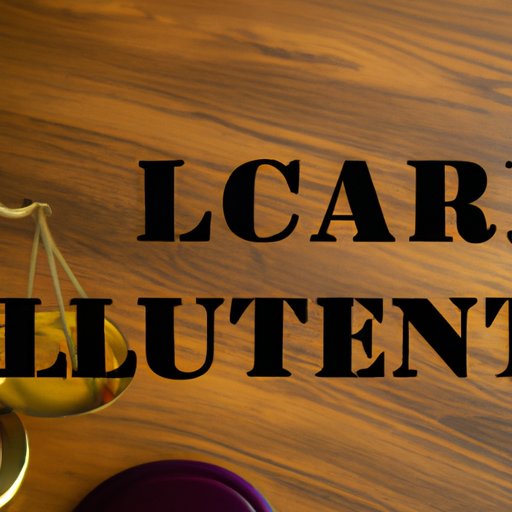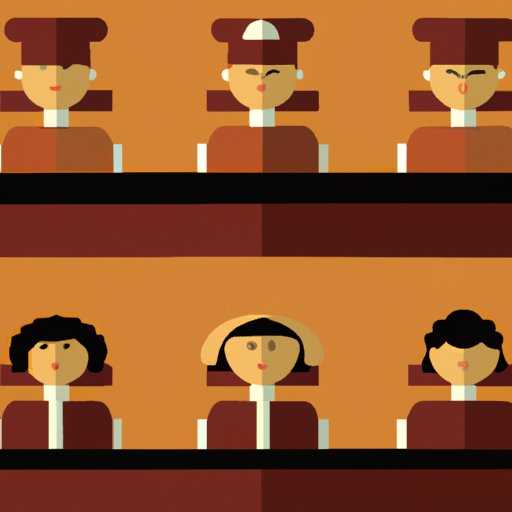Introduction
The court system is an important part of the American justice system. Its purpose is to ensure that individuals accused of a crime receive a fair trial and that their rights are protected throughout the process. The court system also helps to protect the public from criminals by ensuring that those found guilty of a crime are punished in accordance with the law. In this article, we will explore how court works and provide a guide to court procedures and practices.

Guide to Court Procedures and Practices
When it comes to understanding how court works, it is helpful to have an understanding of the different types of court proceedings. These include criminal trials, civil trials, family court hearings, appeals, and more. It is also important to understand the role of judges in the courtroom and how they are responsible for maintaining order and enforcing the law.

Exploring the Different Types of Courts
The U.S. judicial system is made up of several different types of courts. These include federal, state, and local courts. Federal courts handle cases involving laws passed by Congress or disputes between states. State courts handle cases involving state laws and disputes between citizens of the same state. Local courts handle cases involving local laws and disputes between citizens of the same county or city.
Understanding the Role of Judges in the Courtroom
Judges play a key role in the courtroom. They are responsible for ensuring that the proceedings are conducted in accordance with the law, providing rulings on legal matters, and overseeing the jury’s decision making process. Judges also have the power to impose sentences on those who are convicted of a crime.

The Impact of Legal Representation on Court Cases
Having a lawyer present during court proceedings can be beneficial for both accused individuals and prosecutors. Attorneys can provide advice and guidance to their clients, as well as represent them in court. Attorneys can also help to ensure that all relevant evidence is presented and that the court follows the proper procedures. Pro-se litigants, or individuals who represent themselves in court, can also have an impact on court proceedings.
Examining the Role of the Jury in Court Proceedings
A jury is an important part of the court system. Juries are responsible for determining whether a defendant is guilty or innocent based on the evidence presented in court. Jurors are also responsible for making sentencing recommendations in some cases.
Conclusion
In conclusion, this article has explored how court works, from different types of court proceedings to the role of judges, legal representation, and the jury. Understanding the court system and its procedures is essential for anyone interested in pursuing a career in law or for those who may find themselves involved in court proceedings. For more information about court procedures and practices, please consult the resources provided below.
(Note: Is this article not meeting your expectations? Do you have knowledge or insights to share? Unlock new opportunities and expand your reach by joining our authors team. Click Registration to join us and share your expertise with our readers.)
